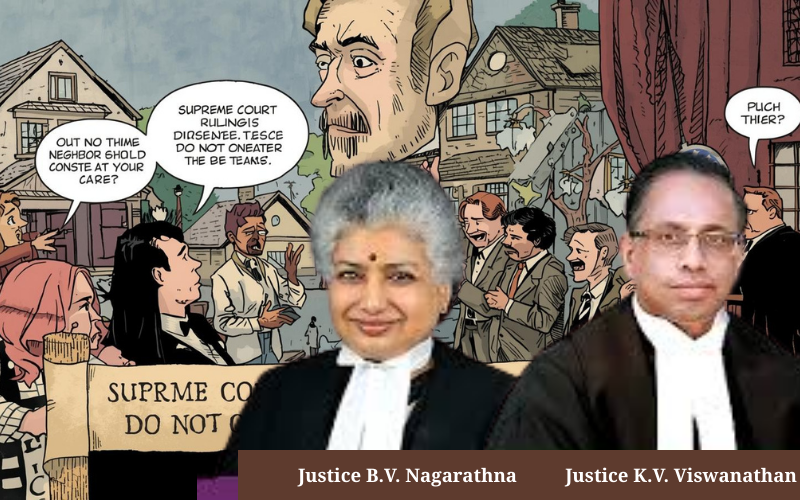Supreme Court Acquits Geeta of Abetment Charges: Neighbourhood Dispute Ends in Legal Vindication
In a significant judgment, the Supreme Court of India has acquitted Geeta, the appellant accused, of the charge of abetment to suicide under Section 306 of the Indian Penal Code (IPC). The case revolved around the tragic demise of Sarika, who took her own life following prolonged disputes with her neighbor Geeta. The apex court found that the circumstances surrounding the quarrels between the neighbors did not meet the legal requirements necessary to sustain a conviction for abetment of suicide.
The bench, comprising Justices B.V. Nagarathna and K.V. Viswanathan, delivered the verdict on September 9, 2025, overturning the Karnataka High Court's previous decision which had modified the appellant's sentence for abetment of suicide. The Supreme Court underscored the necessity of specific intent and active acts to provoke or instigate the victim to commit suicide, elements found lacking in this case.
The judgment elaborated on the legal principles governing abetment under Section 306 IPC, emphasizing that mere heated exchanges or casual remarks, even if made in anger or emotion, cannot be interpreted as instigation to commit suicide. The court pointed out that neighborhood quarrels, though unfortunate, are common occurrences and do not automatically translate into legal culpability for abetment unless there is a clear mens rea and direct act pushing the victim to the brink.
The court also addressed the allegations under the Scheduled Castes and Scheduled Tribes (Prevention of Atrocities) Act, 1989, acquitting the appellant of caste-related abuse charges due to insufficient evidence. It highlighted that most neighbors did not corroborate the claims of caste-based insults, further weakening the prosecution's case.
This judgment is a reminder of the high threshold required for convictions under Section 306 IPC, where the accused's intent and actions must unequivocally lead to the victim's suicide. The Supreme Court's decision reinforces the importance of distinguishing between ordinary domestic disputes and legally actionable offenses of abetment.
Geeta, who had been on bail during the proceedings, is now fully acquitted, with her bail bonds discharged. The ruling provides closure to a case that has spanned several years, marking a pivotal moment in the interpretation of abetment laws within the context of neighborhood disputes.
Geeta v. State of Karnataka, (SC) : Law Finder Doc id # 2775979




